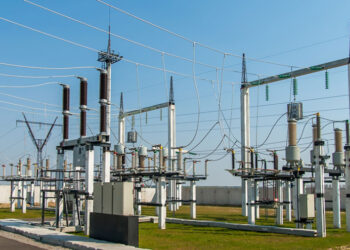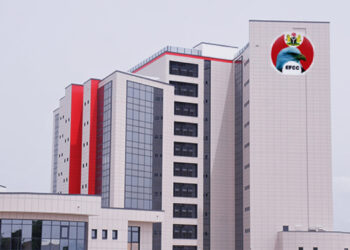The Presidential Compressed Natural Gas Initiative (PCNGI) has attracted over $491 million in investments into Nigeria’s AutoCNG sector, creating more than 84,000 jobs within the past year.
This was disclosed by the Programme Coordinator, Michael Oluwagbemi, while addressing journalists at the State House on Monday.
According to Oluwagbemi, over 9,000 direct jobs and 75,000 indirect jobs have been created as part of the push to transition Nigeria’s automotive ecosystem to cleaner and more affordable energy sources, following the removal of the petrol subsidy in 2023.
Rapid scale-up in conversion capacity
He noted that vehicle conversion capacity, the ability to switch vehicles from petrol or diesel to bi-fuel (CNG/petrol) systems, has risen sharply from just 7 at inception to over 200 currently.
The momentum was further boosted by the launch of the Conversion Incentive Programme (CIP) by President Bola Tinubu in August 2024, which has already resulted in the recruitment of 3,000 new technicians.
- The CIP is designed to enable the free or subsidized conversion of up to one million vehicles, particularly those used in public transport, ride-hailing services, and government agencies.
- As part of the initiative, 22,000 conversion kits were procured and deliveries commenced in October 2024 through the Federal Ministry of Finance.
- To support this scale-up, Oluwagbemi said the PCNGI plans to establish 10,000 conversion centers by the end of Q2 2025, having kicked off in December 2024.
- In addition, a financing model has been introduced in collaboration with CreditCorp to provide public servants with access to vehicle conversion loans or discounts.
CNG and EV bus deployment
He noted that to demonstrate the viability of CNG and electric vehicles (EVs), the Ministry of Finance procured a total of 655 buses — 421 CNG-powered, 36 electric, and others — with 405 already deployed.
Some of these have been allocated to labor unions as part of ongoing wage negotiations.
- Oluwagbemi acknowledged the recent increase in demand for CNG, driven by over 30,000 private-sector conversions, which has led to supply bottlenecks at some refueling stations.
- To address this, the PCNGI launched the Refueling On-Lending Programme — a scheme providing refueling infrastructure to approved centers. The rollout covers 25 sites across 15 states.
- The first site went live in Kwara, with others in Kogi, Ekiti, Rivers, and the FCT expected before May 1, 2025.
Additional rollouts in Kaduna, Abia, Enugu, Niger, Kano, and Benue are planned by June 12.
Private Sector Partnerships Driving Growth
Oluwagbemi emphasized that from May to November 2024, PCNGI engaged in an intensive campaign to attract private sector investment — a strategy that has seen several firms committing capital.
Key developments include:
- NNPC Ltd: 12 CNG refueling sites already live; 8 more to be deployed by the end of Q2 2025; 100 additional sites approved for rollout in 18-24 months.
- NIPCO: Equipment imported for 32 daughter stations, with 22 operational and 8 under construction.
- Bovas: 8 stations under construction.
- AY Shafa: 1 station completed, 9 more underway.
- Others: Ibile Oil and Gas, MBH, and Mikano are also investing in both daughter and mother stations.
Ensuring safety and regulatory oversight
On the safety front, Oluwagbemi addressed concerns regarding a CNG incident in Benin, attributing it to illegal cylinder fabrication by economic saboteurs.
He noted that arrests had been made.
To strengthen regulation, he revealed plans to launch the Nigeria Gas Vehicles Monitoring System (NGVMS), which will ensure only certified vehicles and tanks are eligible for refueling.
The NGVMS is expected to be fully operational by the end of 2025.




















